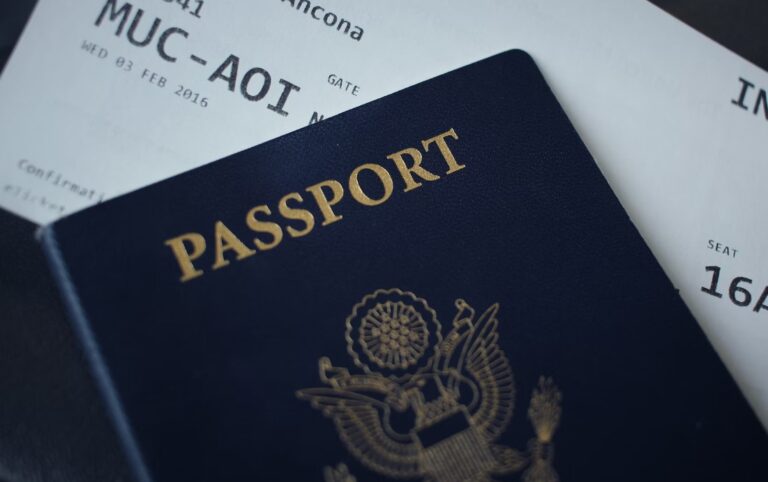For the first time in five years, Japan has been displaced from first place in the ranking of the most “powerful”, i.e. most accepted, passports in the world. Singapore took the lead, according to the latest ranking of the Henley Passport Index 2023.
Citizens of the small Asian nation in fact have access, without the need for a visa, to 192 countries, out of a total of 227 worldwide. Japan, however, fell to third place, while three European countries reached second place: Germany, Italy and Spain, for which visa exemption applies for 190 destinations.
Table of Contents
How is the Henley Passport Index ranked?
The Henley Passport Index ranks the most powerful passports in the world and is updated quarterly. It is based, in fact, on the number of destinations to which passport holders can access without a visa.
Henley & Partners, a global citizenship and residency consultancy, uses data from the International Air Transport Association (IATA) to rank 199 passports. The index has been in existence for 18 years.
Countries get one point for each destination they can visit without a visa. That is, whether citizens can obtain a visa on arrival, a visit permit or an electronic travel authorization (ETA) when entering the destination.
No points are awarded for destinations where a visa is required or the passport holder must obtain a government-approved electronic one prior to departure.
Which countries have the most powerful passports?
As of early 2023, Japan held the top spot, with visa-free access to 193 countries. It has now fallen to 189 countries, leaving Singapore in first place. In the last ten years, the city-state has obtained visa exemption for 25 other countries, climbing five places in the ranking.
The top 10 is completed by:
- Germany, Italy and Spain;
- Japan, Austria, Finland, France, Luxembourg, South Korea and Sweden;
- Denmark, Ireland, the Netherlands and the United Kingdom;
- Belgium, Czech Republic, Malta, New Zealand, Norway, Portugal and Switzerland;
- Australia, Hungary and Poland;
- Canada and Greece;
- Lithuania and the United States;
- Latvia, Slovakia and Slovenia;
- Estonia and Iceland.
The United Kingdom rose from sixth to fourth place for the first time since 2017. The United States, however, continued its decade-long decline, dropping a further two places to eighth place.
Over the last decade, the North American country has seen the smallest increase in its score compared to all others: in 2014, the United Kingdom and the United States jointly occupied first place.
Which countries have the least powerful passports?
However, the Afghan passport remains the weakest in the world, with visa-free access to just 27 destinations – 165 fewer than Singapore. Followed by Iraq (29 destinations) and Syria (30 destinations).
At the bottom of the ranking we also find Pakistan (33 destinations), Yemen and Somalia (35 destinations), Palestine and Nepal (38 destinations), North Korea (39 destinations), Bangladesh (40 destinations), Libya and Sri Lanka (41 destinations) and Kosovo (42 destinations).
The freedom to travel is increasing, but inequalities are also growing
Over the years, the Passport Index shows that the freedom to travel is generally increasing. The average number of countries that can be accessed without a visa has almost doubled, from 58 in 2006 to 109 in 2023. Only eight countries in the world have less access to visa-free travel today than they did ten years ago.
Since 2013, citizens of the United Arab Emirates have been able to avoid visas for 107 destinations, which has allowed the Middle Eastern nation’s passport to rise from 56th to 12th place in the ranking.
But Colombia is the country that has gained the most positions, going from 65th to 37th place. Ukraine and China are also in the top ten of the nations that have risen the most in the ranking in the last 10 years. However, the gap between the most and least powerful passports is widening.
Which countries have the most welcoming visa policies?
A new ranking, the Henley Openness Index, reveals which countries have the most and least welcoming visa policies. Small islands, African states and Cambodia occupy the top 20 places.
Twelve countries offer visa waiver or visa on arrival to all 198 other passports in the world. These are Burundi, Comoros Islands, Djibouti, Guinea-Bissau, Maldives, Micronesia, Mozambique, Rwanda, Samoa, Seychelles, East Timor and Tuvalu.
However, the four countries at the bottom of the list do not allow visa-free access for any passport. These are Afghanistan, North Korea, Papua New Guinea and Turkmenistan. They follow Libya, Bhutan, Eritrea, Equatorial Guinea and India, which provide visa exemption for fewer than five nationalities.
Does openness equal access?
The two indices show that high openness does not necessarily equate to high visa-free access to countries. However, Singapore and South Korea – both relatively open – have climbed the Passport Index, while the United States and Canada have slipped down the Index due to their stagnating degree of “reciprocity”.
American passport holders can access 184 out of 227 destinations without a visa, while only 44 other nationalities can enter the United States without a visa. EU states, for example, grant visa exemptions to more than twice as many countries as the United States.
Australia, Canada, New Zealand and Japan round out the top five countries with the greatest disparity between the freedom of travel they enjoy and the visa-free access they grant to citizens of other countries. The most open countries but with the least powerful passports are Somalia, Sri Lanka, Djibouti, Burundi and Nepal.
Read also: The 14 countries Americans can’t travel to












